HS2 rail plans: Think tank raises doubts over value
- Published
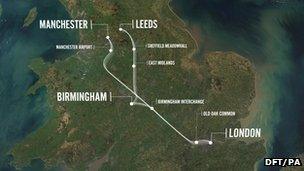
The think tank said the project would be "carbon intensive and environmentally damaging"
Demand for the HS2 high-speed rail project has "likely been overestimated", a think tank has said.
A report from the New Economics Foundation (NEF) also said the £33bn cost does not offer value for money.
Evidence that HS2 would promote economic growth or tackle the north-south divide was "limited", it added.
Ministers said demand for long-distance rail travel was growing and HS2 would "support thousands of jobs and billions of pounds worth of economic benefits".
The NEF said the government had "backed the wrong horse" and the money would be better spent on a "wider range of transport investments".
A recent National Audit Office (NAO) report has also questioned the business case and the funding for HS2.
"Demand for HS2 has likely been overestimated by oversimplified government modelling," the NEF said.
It said the project would be "carbon intensive and environmentally damaging", and it was "time to invest in transport away from London".
'A gamble'
The foundation suggested alternatives for the HS2 expenditure. It claimed:
£10bn could transform rail infrastructure in northern England and the Midlands, creating new and faster east-west rail links, redeveloping stations and electrifying regional rail lines
£10bn could overhaul the East and West Coast main lines, increasing the speed, capacity and reliability of north-south rail travel with less environmental damage than HS2
£6bn could upgrade mass transport in Birmingham, Leeds, Manchester and Liverpool, including investments in large light rail schemes and bus networks
£4.5bn could roll-out superfast fibre optic broadband across the country, which would boost business, reduce pressure on transport and "future-proof" British infrastructure
£2bn could make cities outside London better for cycling and walking
David Theiss, a researcher at the NEF, said: "HS2 is the largest transport investment in the UK's history. At the moment it amounts to a £33bn gamble.
"Our research shows the government is backing the wrong horse," he said.
"Instead of pouring billions of pounds into a single line that will take 20 years to complete we should be spreading our bets on a wider range of transport investments that offer better value for money."
But transport minister Simon Burns said: "Demand for long-distance rail travel has doubled to 125 million journeys a year in the past 15 years and by the mid-2020s the West Coast Main Line will be completely full.
"HS2 will provide the capacity needed in a way that will support thousands of jobs and billions of pounds worth of economic benefits."
He went on: "It is not a case of HS2 and nothing else. During 2014-19 we are investing over £9bn on the current rail network, while latest figures show that over a one year period we spent upwards of £8.7bn on our roads."
The Department for Transport says phase one of HS2 will cut London to Birmingham travel to 49 minutes, from the current one hour and 24 minutes.
This will be followed by a Y-shaped second phase, taking services on from Birmingham to Manchester and Leeds.
This is intended to virtually halve journey times between Birmingham and Manchester - to 41 minutes - and between London and Manchester from two hours and eight minutes to one hour and eight minutes.
Speeds of up to 250mph on HS2 would reduce a Birmingham to Leeds journey from two hours to 57 minutes.
It is hoped the first trains will run on the HS2 line around 2026.
- Published17 May 2013
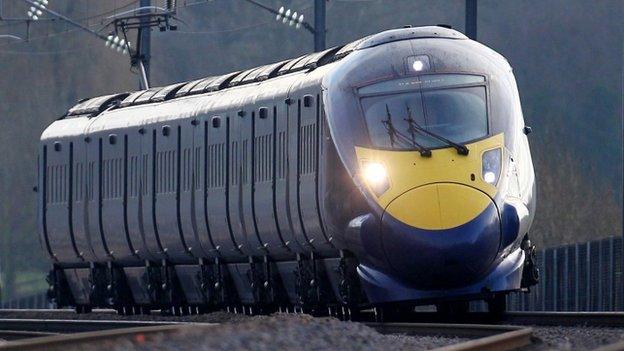
- Published6 October 2023
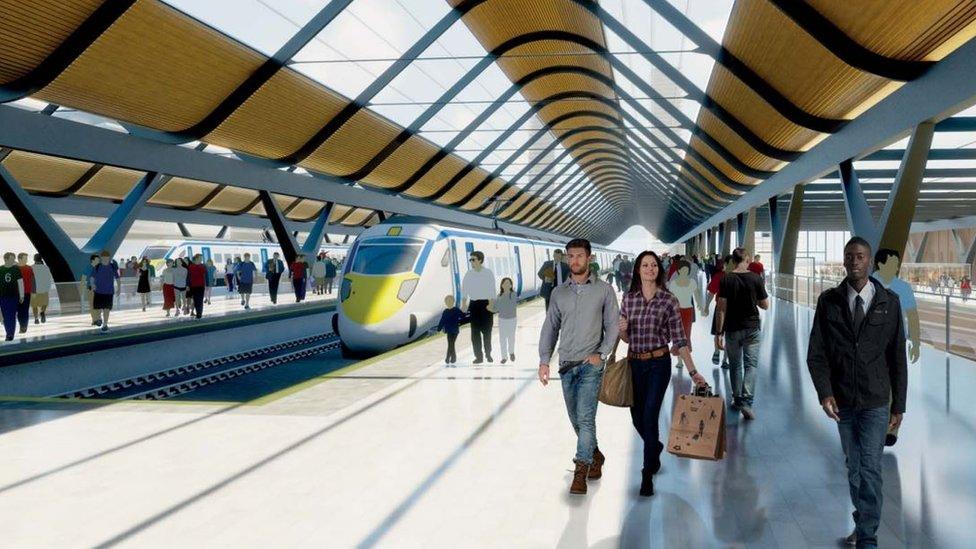
- Published16 May 2013
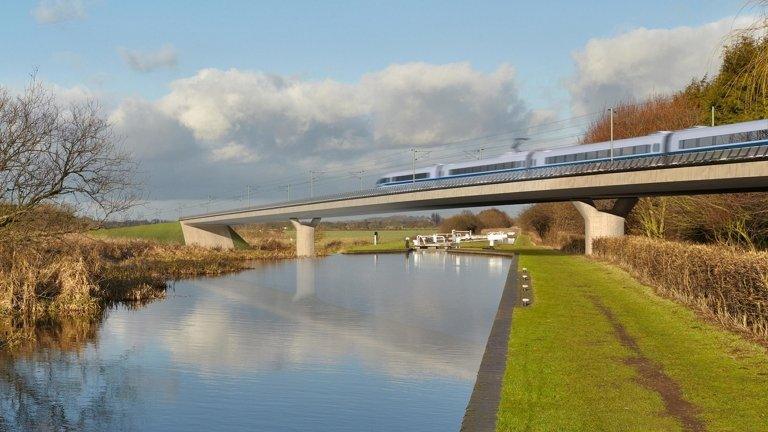
- Published29 May 2013
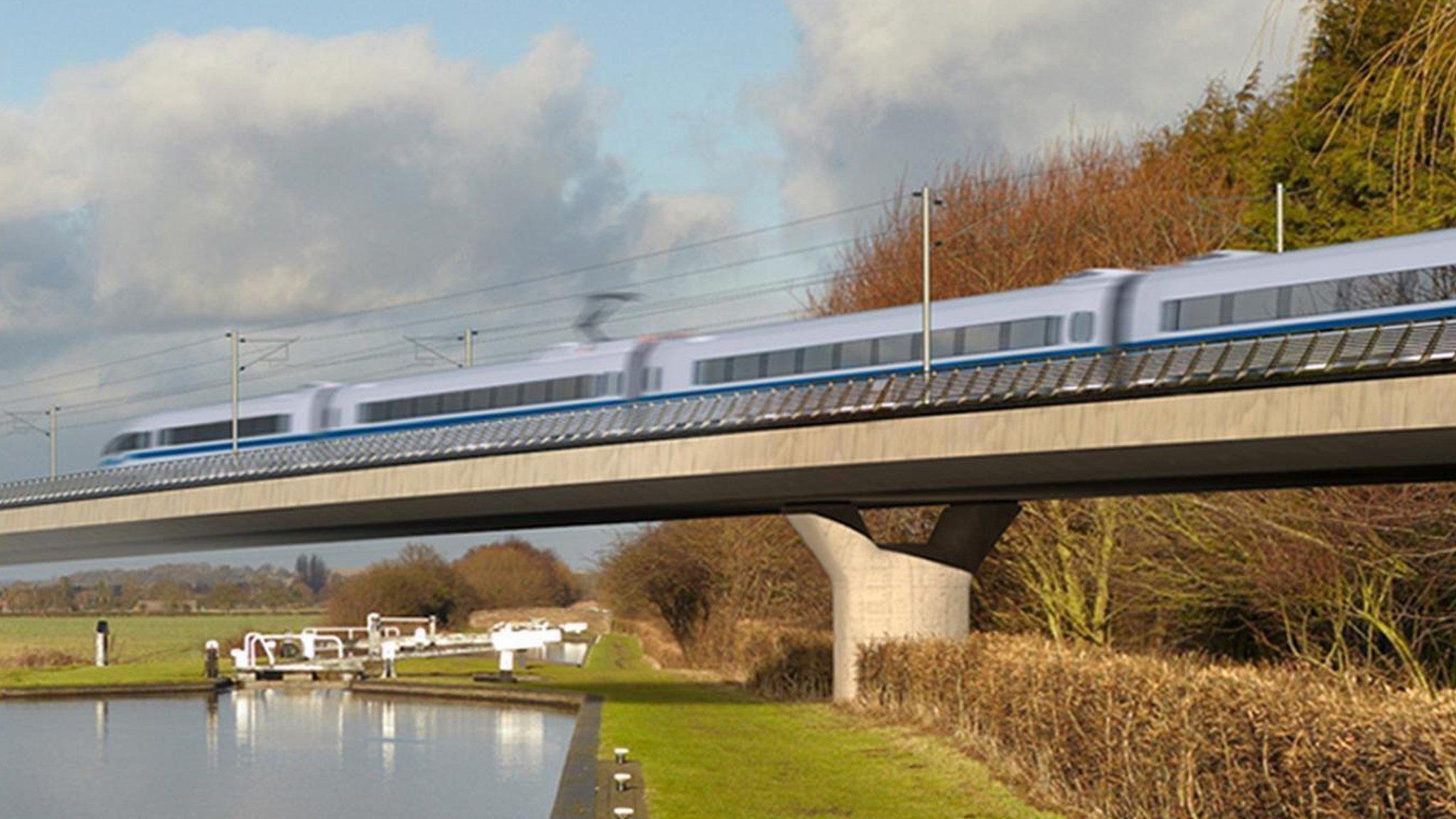
- Published15 March 2013
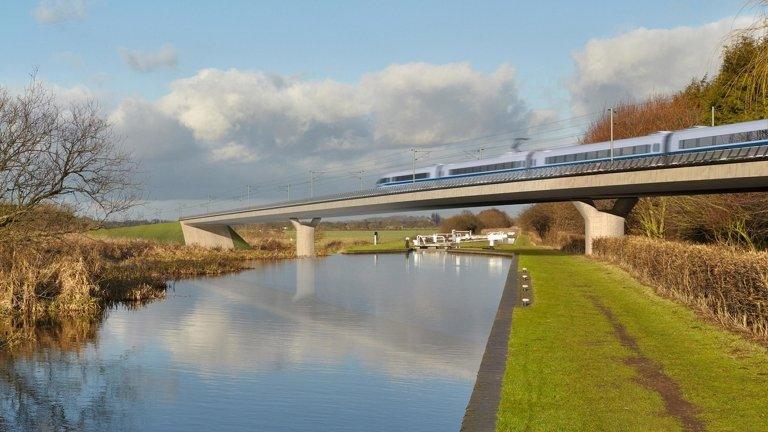
- Published20 May 2013
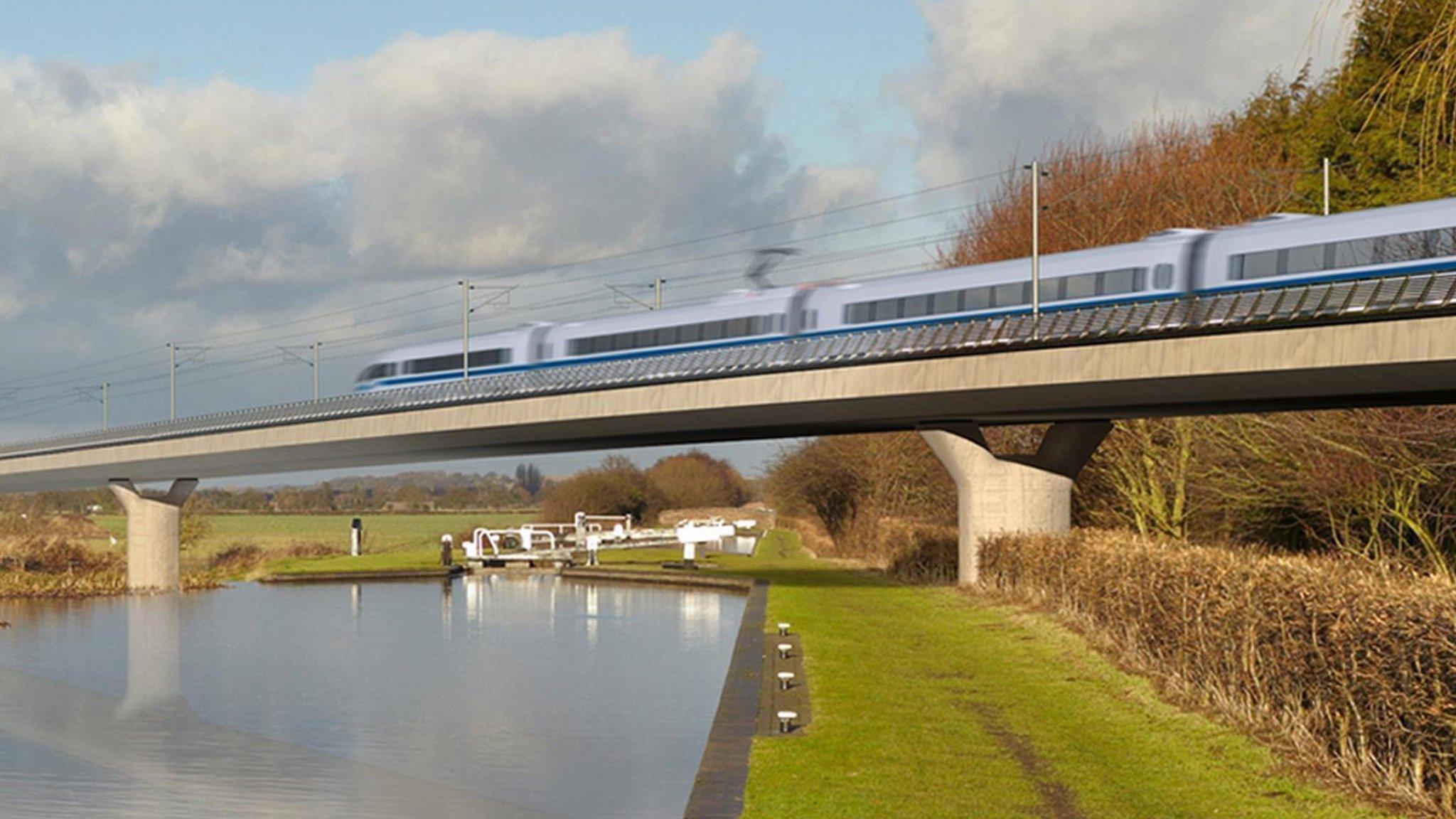
- Published10 January 2012

- Published8 May 2013
